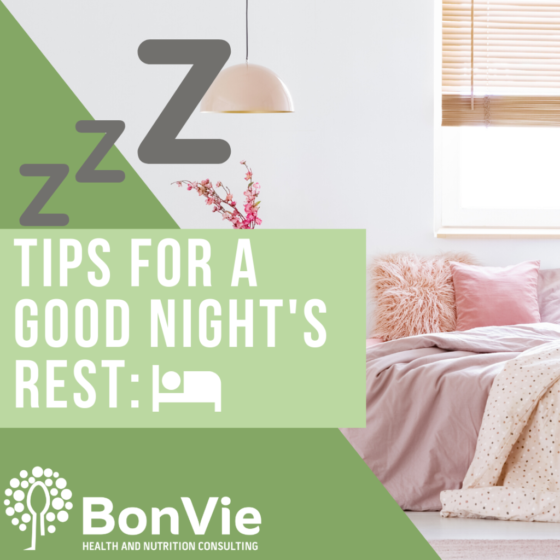
09 May Self-Care for Sleepy Time: Tips for a Good Night’s Rest
Getting a good night’s rest can certainly be challenging, especially when life dramas comes knocking! It is the one self-care activity that I probably struggle with most because I have a hard time shutting off my mind and body from the day. However, I know that getting adequate rest is a vital form of self-care to ensure good mental and physical health.
If you’re a parent of a young child who wakes you at night, then I feel your pain and I want to be the first to remind you that it WILL get better. My daughter didn’t sleep through the night with any consistency until she was almost 4 years old. It was torture for my sleep routine, and almost 2 years later I’m still working on “normalizing” after so many years of chronic sleep deprivation.
Let’s be real here, people. You don’t have to have a kid or partner waking you at night to be suffering with your sleep! Stress from the state of the world and your life are often enough to make all of us sleep deprived.
If you can relate to the sleepy time struggles, then check out these tips you can consider to ensure you are maximizing your time resting and fueling up for the next day ahead!
1. Turn OFF the electronics (aka: phone!) and give yourself time to unwind. Blue light exposure from phones and televisions can actually make it much more challenging for you to go to sleep.
You can also put your phone and some tablets into night mode or blue shade mode if you absolutely have to use them. My Kindle allows me to read in bed at night with blue shade on so that it won’t disrupt my body’s melatonin production. It makes a huge difference!
2. Consider a soothing beverage. I like to enjoy a cup of herbal tea before bed sometimes as I find this warm-aromatic beverage very calming and soothing. Teas like chamomile and holy basil can promote relaxation in the body, as can anything with lavender. Celestial Seasonings sleepytime tea line is delicious, as is Traditional Medicinals chamomile lavender tea (they’re two of my personal go-to teas for night time).
3. Let your mind unwind. Take some time to read a book, spend time with family or a significant other, stretch, do yoga nidra, or meditate. Taking just a few minutes to clear your mind from the stress of the day can make a significant difference once it is actually time to go to bed.
If you struggle to do this on your own (I personally need help with the mental unwind), then use apps and YouTube videos to help you! I like to fall asleep to guided meditations that I’ve found on Amazon Music, YouTube, and with apps like iSleep Easy, Calm, Rest and Relax, Simply Being, and The Tapping Solution.
4. Get ready for bed early so you don’t have to do it later when you may be more tired. When I’m really exhausted at the end of a workday, I often get into my pajamas and wash my face before I even have dinner! This way, when I’m ready to go to bed later, it doesn’t take as long (brush teeth, take vitamins, and crash into bed).
Getting ready for bed can certainly be a drag when you wait until the last minute. Get into your jammies before you become exhausted and stressed. Prepare your bed and even lay in it to get your mind “ready” for rest mode.
5. Avoid caffeine close to bedtime and avoid long naps during the day. These are both things that can make going to bed at night more challenging. Even if you think you’re not caffeine sensitive, the residual effects of caffeine interfere with REM sleep (meaning your sleep won’t be as deep and restful). Cut off your caffeine by lunch time.
6. Try to get into the habit of sleeping and waking at similar times each day and aim for 7-8 hours of rest each night, at least! Your body will likely get used to falling asleep and waking at these times if you keep them consistent. That being said, if you’re totally wiped by Friday night, don’t hesitate to give yourself an extra few hours of sleep on the weekend. Research shows that it can helpful to have a little catch-up sleep now and then to restore you after a tough week.
7. Make your bedroom a place meant exclusively for relaxation (sleep, sex, chill time). Doing other activities in your bedroom like homework or studying, for example, can actually make it harder to fall asleep at night in that space because you are using your bedroom for more strenuous and non-sleep related tasks. Your body will get used to this mindset!
Make your bedroom an enticing and inviting place that you can’t wait to get to after a long and stressful day to help get your body and brain into “sleep mode”. Cooler room temperatures, comfortable mattresses and pillows, blackout curtains, aromatherapy diffusers, and white noise or calming music are just some examples of things you can try out in your room. I personally sleep better when I fall asleep with a warm body in a cool room — so in the winter time, I use a heated blanket with a 3-hour shut off and I keep the temperature of my house cooler at night. Play around with these kinds of things until you find your perfect combination.
8. Consider taking a melatonin supplement, getting acupuncture treatments, or speaking to a therapist of wellness practitioner if lack of sleep persists. If sleeping issues have always been an ongoing problem, it may be best to talk to a professional that can help you get to the root of the issue. No one should have to go through life without adequate rest! Sleep is vital for us all to live healthy lives.
Rest and sleep are certainly one of the best forms of self-care you can focus on. Many people overlook just how important proper sleep is.
Consider these tips as a guide to ensure you are prioritizing sleep and let me know what other tips you have for a good night’s sleep. I’d love to hear about them and dream about them :). Please share on social media (@bonviehealth) and tag it #selfcaremadesimple.


Maximilian1488
Posted at 04:39h, 17 Aprilhttp://wish-club.ru/forums/index.php?autocom=gallery&req=si&img=5238
Drake1644
Posted at 17:34h, 18 Aprilhttps://vitz.ru/forums/index.php?autocom=gallery&req=si&img=4808